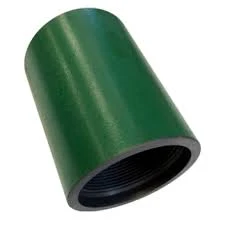- Afrikaans
- Albanian
- Amharic
- Arabic
- Armenian
- Azerbaijani
- Basque
- Belarusian
- Bengali
- Bosnian
- Bulgarian
- Catalan
- Cebuano
- Corsican
- Croatian
- Czech
- Danish
- Dutch
- English
- Esperanto
- Estonian
- Finnish
- French
- Frisian
- Galician
- Georgian
- German
- Greek
- Gujarati
- Haitian Creole
- hausa
- hawaiian
- Hebrew
- Hindi
- Miao
- Hungarian
- Icelandic
- igbo
- Indonesian
- irish
- Italian
- Japanese
- Javanese
- Kannada
- kazakh
- Khmer
- Rwandese
- Korean
- Kurdish
- Kyrgyz
- Lao
- Latin
- Latvian
- Lithuanian
- Luxembourgish
- Macedonian
- Malgashi
- Malay
- Malayalam
- Maltese
- Maori
- Marathi
- Mongolian
- Myanmar
- Nepali
- Norwegian
- Norwegian
- Occitan
- Pashto
- Persian
- Polish
- Portuguese
- Punjabi
- Romanian
- Russian
- Samoan
- Scottish Gaelic
- Serbian
- Sesotho
- Shona
- Sindhi
- Sinhala
- Slovak
- Slovenian
- Somali
- Spanish
- Sundanese
- Swahili
- Swedish
- Tagalog
- Tajik
- Tamil
- Tatar
- Telugu
- Thai
- Turkish
- Turkmen
- Ukrainian
- Urdu
- Uighur
- Uzbek
- Vietnamese
- Welsh
- Bantu
- Yiddish
- Yoruba
- Zulu
Well Casing Extension Coupling Solutions for Enhanced Oil and Gas Production Systems
Well Casing Extension Coupling An Essential Component in Well Construction
In the complex world of well construction and management, the integrity of a well system is paramount. One significant aspect of this integrity is the coupling between casing segments, particularly when extending casing depths for various purposes. Well casing extension coupling serves as a critical connector that ensures the stability and durability of wells, whether in oil and gas extraction, geothermal energy projects, or water well drilling.
Understanding Well Casing
Well casing is a series of steel pipes that line the borehole and serve multiple functions it provides structural support, protects the well from external contaminants, and maintains the borehole’s integrity to prevent any collapse. Casing is essential for various types of wells, including those drilled for oil, gas, and water extraction.
Over time, advancements in technology have led to the development of several casing materials and designs. However, one commonality across all types of casing is the need for secure connections between segments. This is where well casing extension couplings become crucial.
What is a Well Casing Extension Coupling?
Well casing extension couplings are specialized connectors designed to join segments of casing together, particularly when there is a need to extend the casing further down into the geological formations. These couplings can facilitate the addition of new casing strings to accommodate changes in the well’s operational depth or environment.
The typical design of a casing extension coupling includes a threaded portion that allows two casing sections to be securely joined. This threaded connection must be robust enough to handle not only the weight of the casing but also the various stresses and pressures encountered during the drilling and production processes.
Types of Couplings
There are several types of couplings used in well construction, including
1. Threaded Couplings The most common type, where the ends of the casing pipes are threaded to create a tight seal. They can be further tightened using specialized tools to ensure leak-proof connections.
well casing extension coupling

2. Welded Couplings These are used in applications where additional strength is required. The casing segments are welded together, creating a continuous pipe structure that is less prone to failure.
3. Slip Couplings Designed to accommodate expansions and contractions in the casing due to temperature changes. Slip couplings allow for slight movement between pipes while maintaining a waterproof seal.
4. Flanged Couplings Used where disassembly is necessary for maintenance or repair. Flanged couplings are bolted together and can be easily disconnected when required.
Importance of Well Casing Extension Couplings
The importance of well casing extension couplings cannot be understated. They play a vital role in ensuring the structural integrity of the casing system. A well-designed coupling helps to
- Withstand Pressure Wells experience high pressure from fluids and gases. Secure couplings prevent leaks and maintain well integrity under pressure.
- Prevent Environmental Contamination By securely sealing each casing section, couplings help protect groundwater and surrounding areas from contamination due to drilling fluids or hydrocarbons.
- Facilitate Depth Extension In cases where deeper drilling is required, coupling facilitates the easy addition of casing sections, allowing for efficient adjustments in well depth.
- Enhance Safety Properly secured couplings mitigate the risk of casing failure, which can lead to dangerous blowouts or structural collapse.
Conclusion
Well casing extension couplings are a fundamental element in well construction, ensuring the reliability of the entire well system. By providing secure connections between casing sections, they enhance the structural integrity of wells, prevent contamination, and accommodate changes in operational depth. As the demands of the energy and water sectors evolve, continuous advancements in coupling technology will be essential in maintaining safe and efficient well operations. Thus, stakeholders in the industry must prioritize the selection and installation of high-quality couplings to effectively support their well systems. In conclusion, well casing extension couplings are not just connectors; they are the backbone of a successful well construction strategy.
-
Tubing Pup Joints: Essential Components for Oil and Gas OperationsNewsJul.10,2025
-
Pup Joints: Essential Components for Reliable Drilling OperationsNewsJul.10,2025
-
Pipe Couplings: Connecting Your World EfficientlyNewsJul.10,2025
-
Mastering Oilfield Operations with Quality Tubing and CasingNewsJul.10,2025
-
High-Quality Casing Couplings for Every NeedNewsJul.10,2025
-
Boost Your Drilling Efficiency with Premium Crossover Tools & Seating NipplesNewsJul.10,2025







